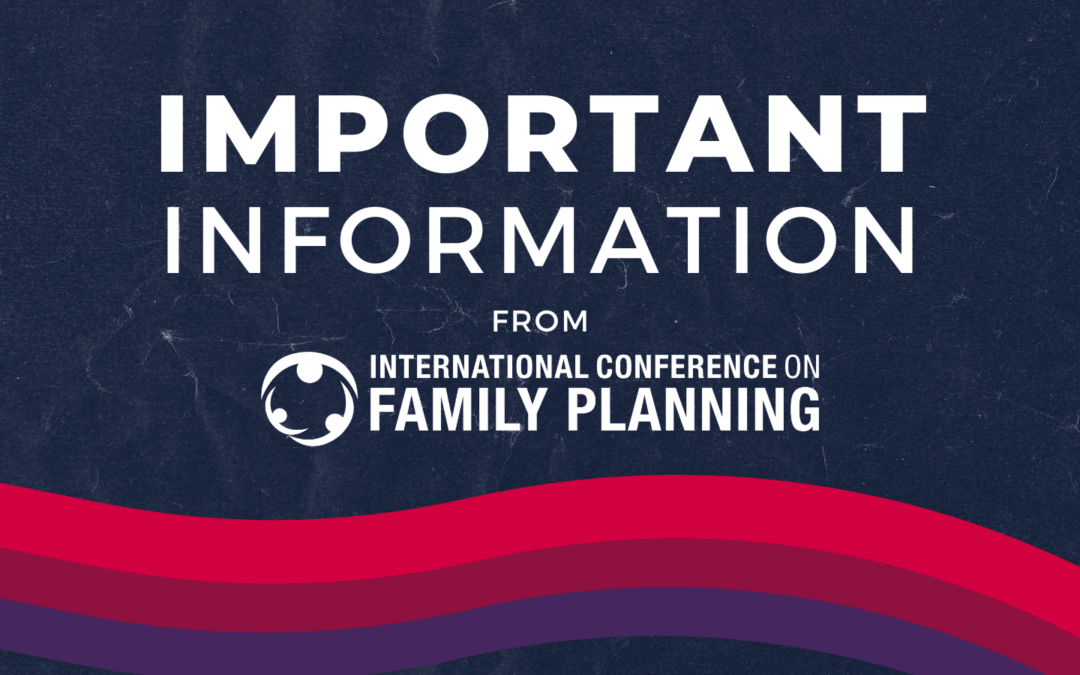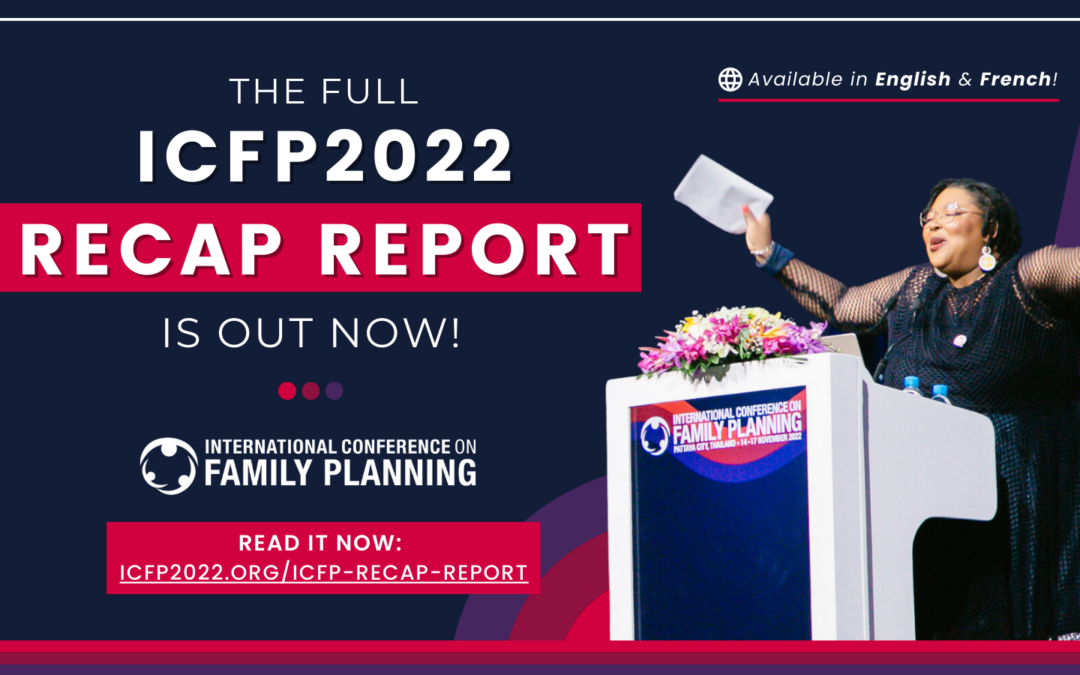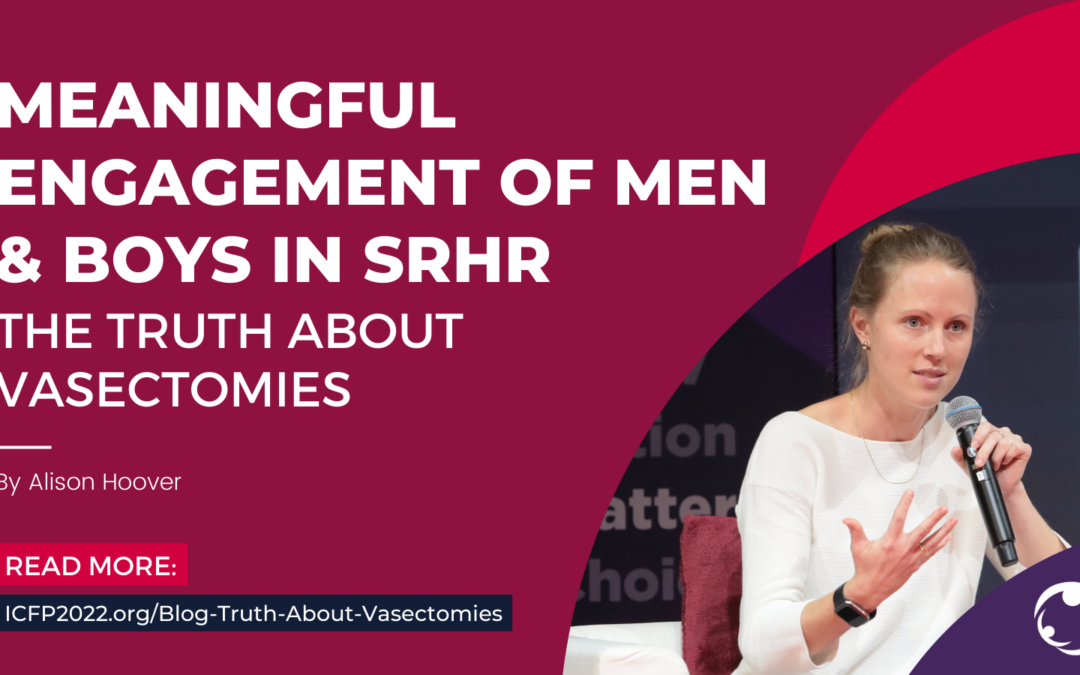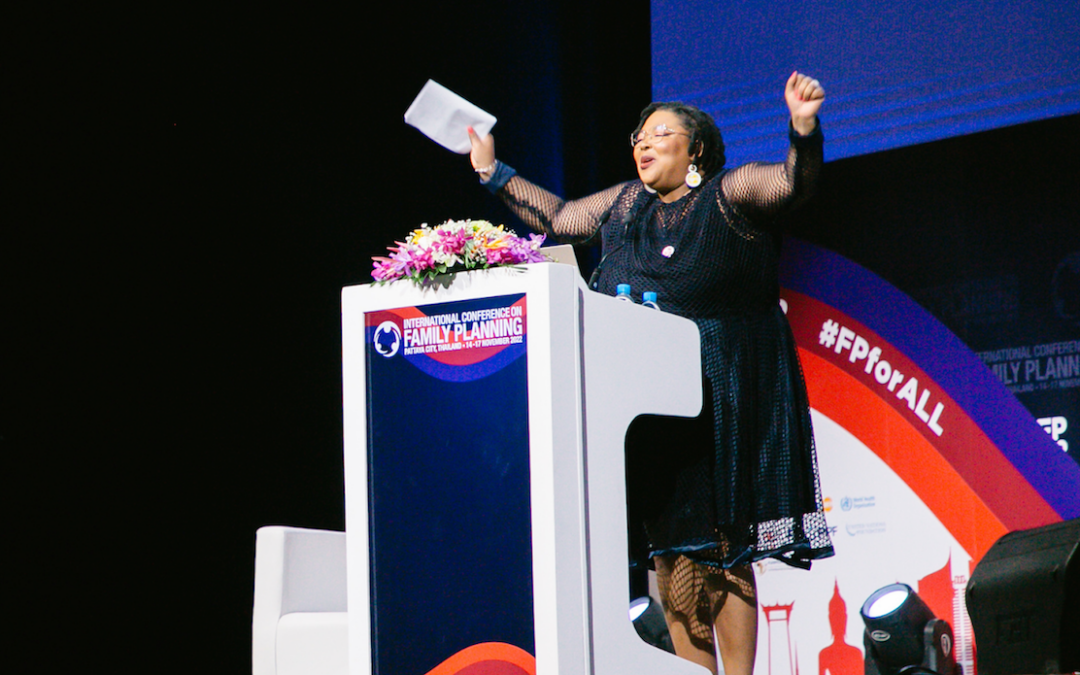Written by Dayna Kerecman Myers, Managing Editor, Global Health NOW
This article originally appeared on Global Health NOW. Reposted with permission.
KIGALI—The delegates assembled for the 5th International Conference on Family Planning are more than just advocates of family planning, Gates Institute Director Jose “Oying” Rimon II said in his opening remarks. They might as well be superheroes, because family planning addresses so many other issues—such as women’s rights, gender violence, poverty and climate change—in a significant way.
FP2020’s annual progress report, released ahead of the conference opening yesterday, revealed some superhero-fueled success stories—but also made clear that more superpowers are needed to finish the job.
2 years ahead of the deadline to bring 120 million new women and girls access to modern family planning by 2020, more women and girls than ever—317 million+ in the world’s 69 poorest countries as of July 2018—have access to modern contraceptives, according to the report. Furthermore, 30% more people now have access to family planning than if there hadn’t been a united community strategizing, planning and using evidence to move forward, noted Natalia Kanem, UNFPA’s executive director, in her opening remarks. “As societies we understand that we have to accelerate progress; that is what rescues the girl and the nation.”
And yet, Kanem shared her biggest worry: “We still have a long way to go to bring lifesaving modern contraception of her choice to every woman and girl who wants it.”
That’s clear from the progress report, which shows that since 2012, when the world pledged to expand voluntary family planning access to an additional 120 women and girls by 2020, 46 million new women and girls have gained access—meaning that the world is not on track to reach the original 120 by 2020 goals. “We’re roughly halfway there, and so it’s time to redouble our efforts,” said Chris Elias, president of the Global Development Division for Bill & Melinda Gates Foundation at an ICFP press conference yesterday. But while it will take longer than hoped to reach the original goal of 120 million new users, Elias emphasized this takeaway: “…Family planning is one of the greatest anti-poverty innovations the world has ever known, and one of the smartest investments countries can make.”
Beyond making the economic case for family planning and tracking progress and setbacks, ICFP delegates are also talking about accountability, and many believe that engaging youth could prove key.
Richard Mugenyi, advocacy and communications manager of Reproductive Health Uganda—a local NGO affiliated with the International Planned Parenthood Federation—has zeroed in in the importance of supporting youth advocates in his country.
“Policymakers tend to be blind, to live in denial that youth have sex … but they are sexually active. One-sided interventions like abstinence don’t work,” Mugenyi told GHN on the sidelines of the conference. His program trains youth in social accountability and advocacy, with help from tools like the Advance Family Planning SMART guide. Using a community scorecard, one of his program’s young facilitators assessed and ranked youth access to health services, including family planning. Their efforts resulted in designated youth-friendly health service days in their district, where nearly half (48%) of the population is under the age of 18. Another Reproductive Health Uganda effort supported the launch of a national sex education framework launched in May 2018. That was important, Mugenyi explained, because Uganda had been without sex education in the schools since 2016, when the Ugandan government halted the curriculum, developed by UNICEF and UNFPA, over concern that it was promoting homosexuality in the schools.
ICFP delegates brought similar stories of successes—and challenges—from around the world, and many come down to the importance of involving the next generation of family planning leaders. And if the youth presence at the conference is any indicator, they are up to the challenge. As Dean Ellen J. MacKenzie of the Johns Hopkins Bloomberg School of Public Health said at the opening ceremony, “Everywhere I look in this conference, I see young people. No one understands better how to meet the needs of young people and tap into their potential than young people themselves.”
Sadia Rahman, a youth activist from Bangladesh, brought home that point in her opening address. “What does family planning mean for people my age, when for many of us planning our families is on the distant horizon?” she asked. She said for youth, family planning is not only about contraception—it’s about autonomy over their bodies and their freedom of choice to control our reproductive health. “I come from a society that prizes sons over daughters. My family thought that investing in my education was a waste of money. I had aunts and uncles visit my home and say, she will marry anyway, what difference does her education make?”
But Rahman protested: “Mahatma Ghandi had 5 sons. Who remembers them? But Nehru had one daughter—and she changed the face of India.” Rahman made sure that she was able to go to school.
Global Health NOW’s Dayna Kerecman Myers, with Gates Institute support, is among the journalists reporting from Rwanda at the 2018 ICFP. Check back every day this week for exclusives from the conference, and follow our conference blog here.
Join the tens of thousands of subscribers who rely on Global Health NOW summaries and exclusive articles for the latest public health news. Sign up for our free weekday enewsletter, and please share the link with friends and colleagues: http://www.globalhealthnow.org/subscribe.html





